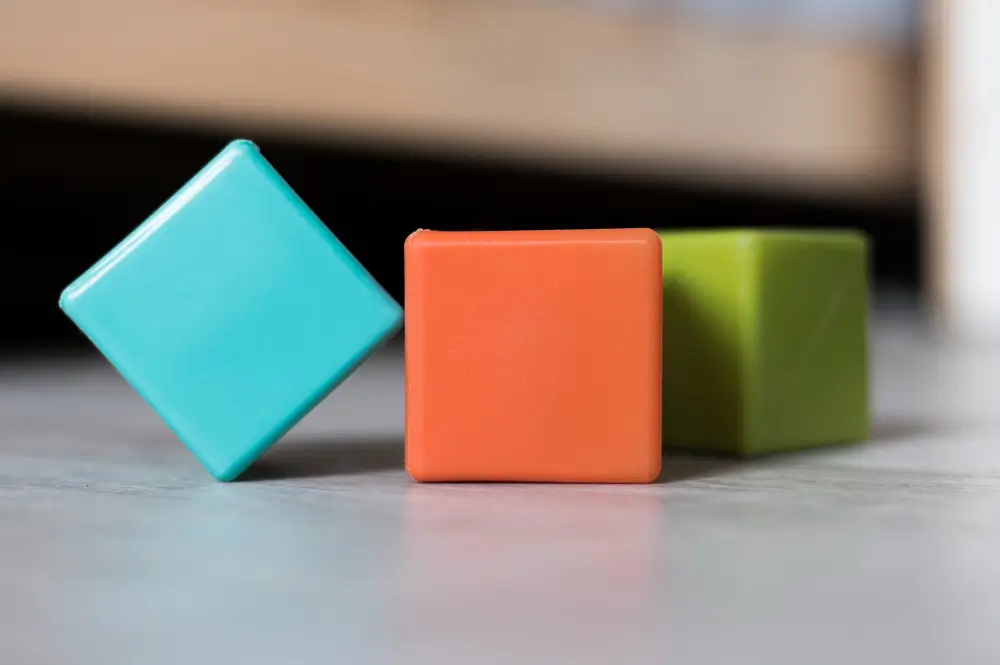What if one of the most powerful tools for early learning has been hiding in plain sight—right inside your toy bin? The link between block play and child development is deeper than just stacking and tumbling. Backed by science, this simple activity could be shaping your child’s brain in remarkable ways. What exactly makes these little blocks such big building tools for growth?
Let’s make sure your child is getting the support they need.
➡️ Book a psychological evaluation today.

Building Strong Minds: Cognitive Skills Developed Through Block Play
At first glance, playing with blocks may seem like just another game, but it’s filled with opportunities to boost cognitive development. Behind every tower built and every structure imagined, complex mental processes are helping children literally build stronger and more flexible minds.
This activity fuels essential skills that drive intellectual and emotional growth.
Logical Thinking and Problem-Solving: When children build towers, arrange pieces, and face the unexpected collapse of a structure, they learn to think critically, plan steps, and adapt when things don’t go as planned.
Organization and Planning: As children grow, their block play becomes more intentional. They start planning and organizing the pieces they need to build specific structures. This demands focus, attention, and memory, strengthening executive function skills.
Symbolic Thinking and Creativity: Each block can turn into something new: a castle, a rocket, or a character. This ability to transform objects into symbolic representations nurtures creativity, stimulates imagination, and strengthens brain connections. It also encourages a mindset open to innovation and problem-solving.
Through this seemingly simple activity, children exercise and develop critical cognitive skills that support their overall growth. Beyond stacking pieces, they are laying the foundations for their future.
Little Hands, Big Gains: Enhancing Fine Motor and Coordination Skills
Did you know that every block your child stacks is an opportunity to strengthen their hands, mind, and independence? Block play goes far beyond entertainment; it develops fine motor skills, coordination, and many other essential abilities that support a child’s journey toward autonomy.
| Development Area | Observable Benefits |
| Fine Motor Skills | Strengthened fingers and hands, improved grip and dexterity |
| Hand-Eye Coordination | More precise, visually guided movements |
| Spatial Awareness | Better grasp of shapes, sizes, positions, and spatial relations |
| Creativity | Freedom to imagine and build |
| Cognitive Development | Improved organization, logical thinking, and problem-solving |
Playing with blocks is more than a pastime. It’s a comprehensive learning experience that boosts both physical and mental development.
Through manipulating pieces, young children train their minds to think, solve, create, and coordinate. It’s a fun and valuable investment in their autonomy and growth.
More Than a Toy: Encouraging Emotional and Social Growth
Behind every tower raised and every bridge built together, emotional and social development is also taking place. Block play is a powerful tool that helps children learn to coexist, express their feelings, and connect with others in a supportive learning environment.
Social Development Through Play
Playing with blocks in a group encourages key social skills from an early age.
- Teamwork and Collaboration: Building together teaches kids to combine efforts toward a shared goal, like raising a house or designing an entire city. This strengthens teamwork skills and appreciation for others’ contributions.
- Sharing and Negotiating: Since blocks are limited resources, children learn to share and negotiate their use, promoting mutual respect, empathy, and the ability to reach agreements.
- Conflict Resolution: When disagreements arise over what or how to build, children develop conflict resolution skills through dialogue and creativity.
- Effective Communication: Planning and building together require children to express ideas clearly, listen to others, and communicate effectively, enhancing social language skills.
Emotional Growth Through Block Play
Besides social skills, block play helps children grow emotionally.
- Expressing Emotions: Through their creations, children can represent how they feel. A castle might symbolize security, while a collapsed tower might show frustration.
- Recognizing Others’ Emotions: Watching peers play offers children the chance to identify emotions in others, strengthening empathy and emotional awareness.
- Emotional Regulation: A safe play environment allows children to experience emotions like frustration or joy and learn to manage them without fear of judgment.
- Building Resilience: When structures fall or plans don’t work out, children learn to persist, try again, and adapt to challenges, strengthening resilience.
Creativity and Imagination as Emotional Engines
Block play also ignites creativity. Children create characters, stories, and imaginary worlds that allow them to explore both ideas and feelings. This creative freedom helps them process emotional experiences in a playful and meaningful way.
Block play builds much more than visible structures. It also builds empathy, patience, confidence, communication, and emotional connections that will stay with children throughout their lives.
Setting the Foundation for Future Learning
Block play is key to building the foundations for future academic learning. Through manipulation and organization, children develop essential skills like logical thinking, problem-solving, and spatial awareness.
While playing, they also explore early math concepts such as counting, geometric shapes, measurements, and patterns. These experiences help them recognize numerical structures and relationships and sharpen their observational and analytical skills.
As they describe their constructions, explain their ideas, or interact with others, children expand their vocabulary and improve their communication abilities. Altogether, these playful experiences create a strong base that supports formal learning later on.
Sources:
- Christakis, D. A., Zimmerman, F. J., & Garrison, M. M. (2007). Effect of block play on language acquisition and attention in toddlers: A pilot randomized controlled trial. Archives of pediatrics & adolescent medicine, 161(10), 967-971.
- Cohen, L. E., & Emmons, J. (2017). Block play: spatial language with preschool and school-aged children. Early Child Development and Care, 187(5-6), 967-977.
